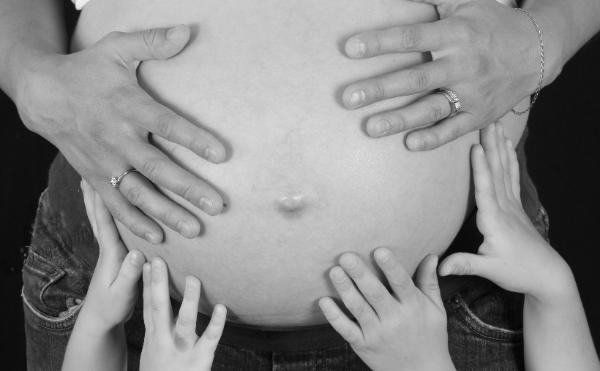I was "randomly selected" to receive a questionnaire on the health of mothers and babies in WV. "PRAMS: Pregnancy Risk Assessment Monitoring System. You can help improve the health of West Virginia babies," the cover states. WV Department of Health & Human Resources sponsors the questionnaire.
An aside. I do find it a bit odd that 1 out of 14 WV new mothers receive the questionnaire, yet I received one following my 2008 homebirth as well. Coincidence?
Most of the questions were multiple choice or yes/no demographic questions or asking about health during the pregnancy, whether I had insurance, whether I smoked or drank or took vitamins, whether my baby was in NICU, etc.
At the end was this gem. "Please use this space for any additional comments you would like to make about the health of mothers and babies in West Virginia." Why, I don't mind if I do.
Here's what I wrote. I could have done better with time to prepare, but I wanted to get it finished and in the mail.
*******************************************************************************
WV has the 5th highest cesarean rate in the US, 36.3%. (cesareanrates.com) The World Health Organization has stated that the cesarean rate should never exceed 15% or else more harm is being done than good. Clearly, WV's cesarean rate is adversely affecting the health of mothers and babies through both preventable mortality and morbidity.
"According to the World Health Organization, midwives should be the preferred medical caregiver for low-risk pregnant women, reserving OB-GYN's for high-risk pregnancies for emergency birth complications only." (http://www.choicesinchildbirth.com/Choose_Your_Medical_Caregiver.html)
World Health Organization "Definition of the Midwife," 1992:
"The most appropriate person to care for pregnant women is someone with midwifery skills who lives close to the community. People trained in midwifery are qualified to provide preventive care to pregnant women, detect abnormal conditions in mothers and infants, assist women through labor and delivery and prescribe essential drugs. When delivery complications arise, those providing midwifery care especially at the community level- need to be able to carry out emergency measures if medical help is absent and get medical assistance or refer women to an appropriate health facility."
The answer to safer, healthier pregnancies in WV and around the world, is MORE MIDWIVES, both in and out of hospitals. More midwives means huge savings in healthcare dollars, too.
Following the 6 recommendations for the safest birth possible (as recommended by the World Health Organization) would dramatically improve outcomes:
1. Let labor begin on its own.
2. Walk, move around, and change positions throughout labor.
3. Bring a loved one, friend, or doula for continuous support.
4. Avoid interventions that are not medically necessary.
5. Avoid giving birth on your back, and follow your body's urges to push.
6. Keep your baby with you--it's best for you, your baby, and breastfeeding.
Details, free videos and print materials at mothersadvocate.org.
* WV MOMS DESERVE EVIDENCE-BASED CARE. * Their babies--our babies--depend on it.
*******************************************************************************
This is what I wrote on the back of the return envelope.
I don't know how to rotate that, so here's what it says.
"WV cesarean rate: 36.3%
World Health Organization max recommended cesarean rate: 15%"
"Treating normal labors as though they were complicated can become a self-fulfilling prophecy. --Rooks"
*****************************************************************************
What would YOU say in the write-in section about the health of mothers and babies and birth in your state/region?



Well done! I wish I had received one of those too. If I ever do I'll be sure to write in some comments as well. I love that quote you put on the back.
ReplyDeleteYeah, I consider it birth evangelism. ;-)
ReplyDeleteI would have written something very similar to what you wrote, undoubtedly! When my husband and I were considering a home birth, and my father was worried about it, I did hours of research to write a well-documented essay on all our reasons for choosing home birth, citing many of the facts you shared here. My dad never responded to my essay, but a few years later when we finally did get to have a home birth, he said that it sounded like a reasonable option.
ReplyDeleteBy the way, I just found your blog, and I love your "birth evangelism" mentality! That's the perfect way to put it. My husband and I are missionaries in Ukraine, and birthing options available to women here are archaic and frightening. We became birth evangelists after a terrible experience in a Ukrainian government hospital with the birth of our first son. Our second son was born with a wonderful midwife in a hospital in the States, and our third son was born in Ukraine, in a friend's home, with a midwife in attendance. (We had to use a friend's home, because there are no home birth midwives in our part of the country. About a week before my due date, we made the 5-hour drive to the capital city and stayed with a friend for a few weeks to have the baby.)
So many Ukrainian woman are terrified of childbirth, and it's mostly due to the conditions in the birthing hospitals. My heart goes out to them, and though I'm not a pushy person by nature, I need very little invitation to begin "preaching" natural childbirth to them. It does feel a bit like evangelism! Of course, it's not the most important kind of evangelism in my mind, but it IS important. Until women understand that things don't have to be this way, there will be no change in the system.
All the best to you as you raise awareness!
~Sharon